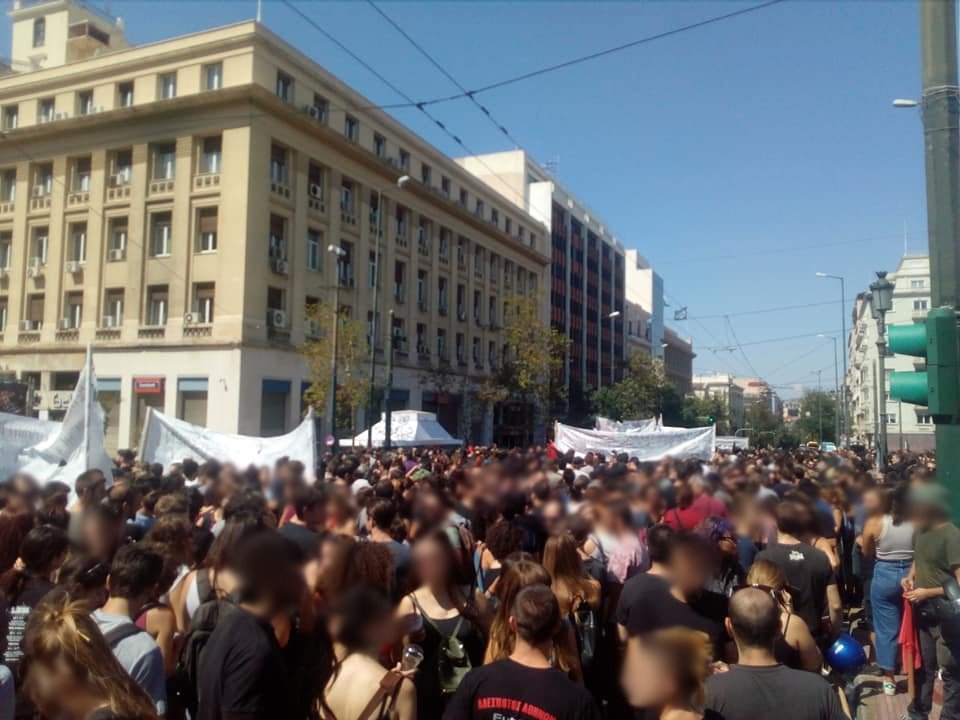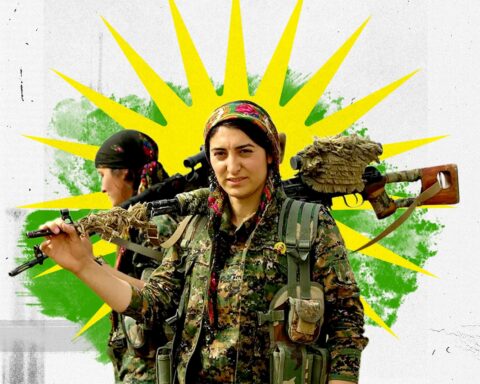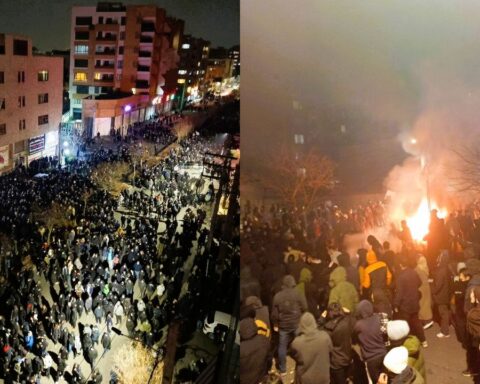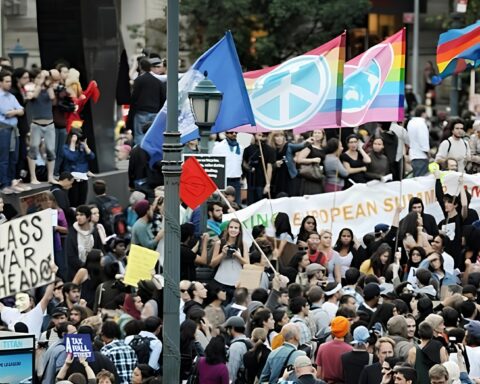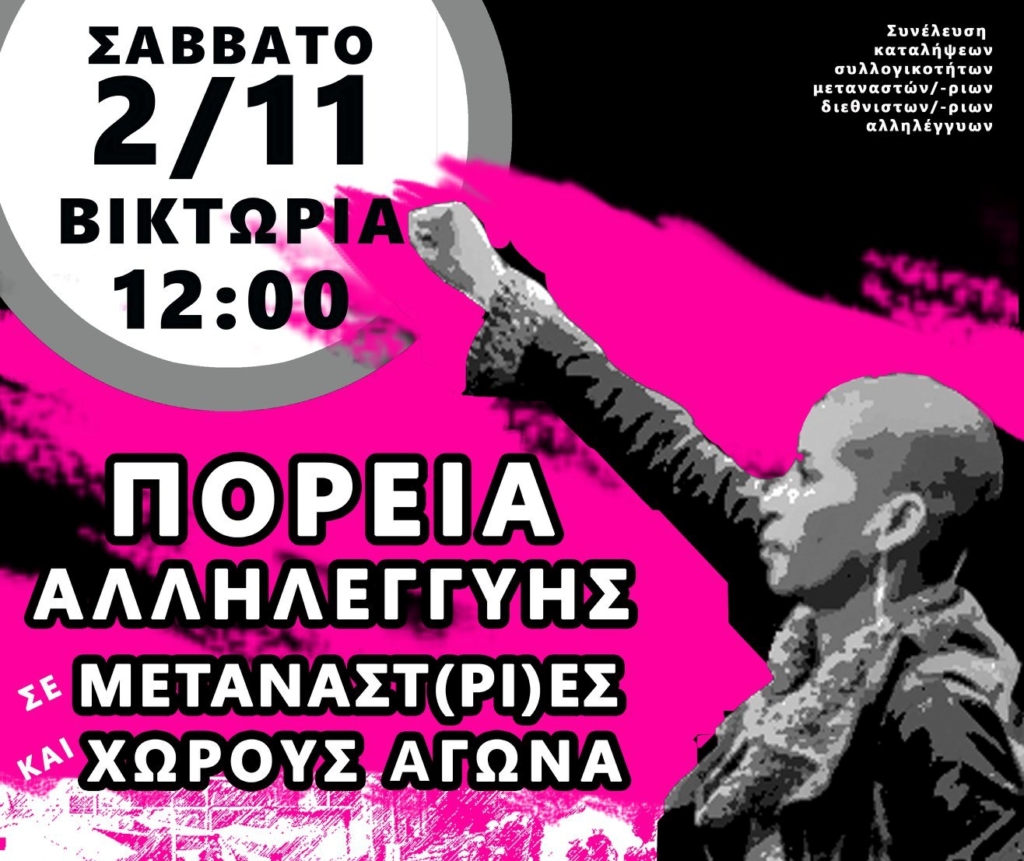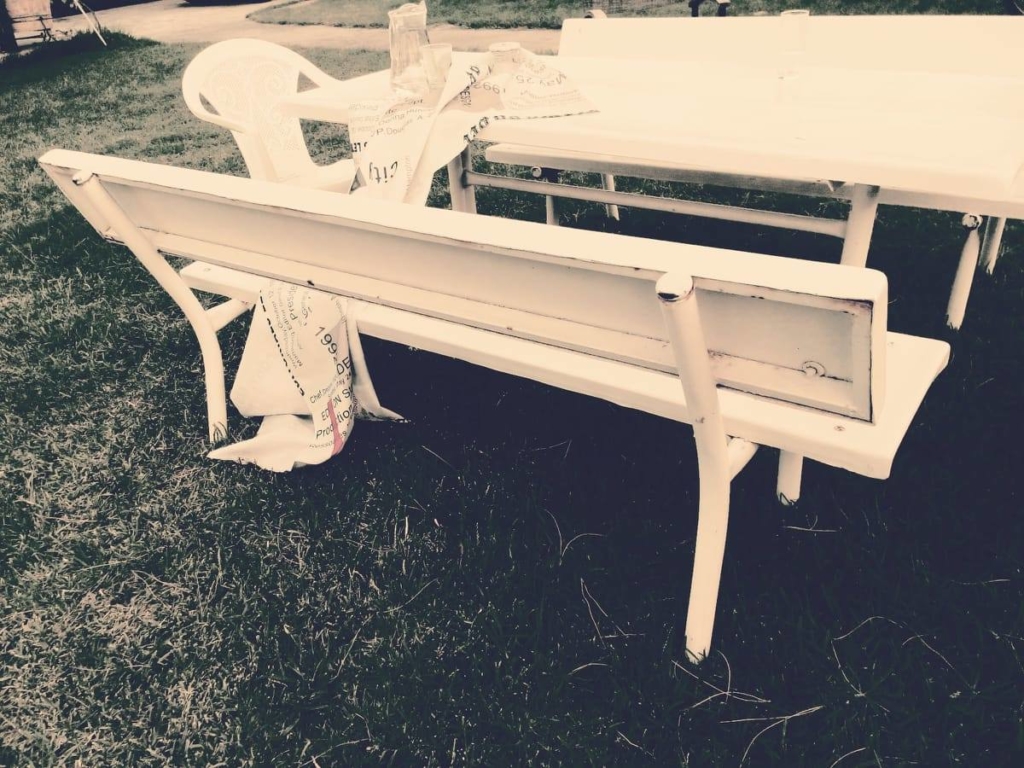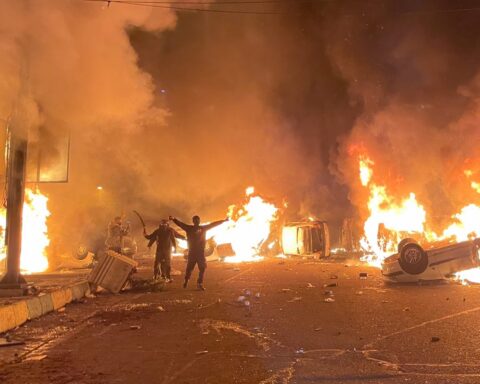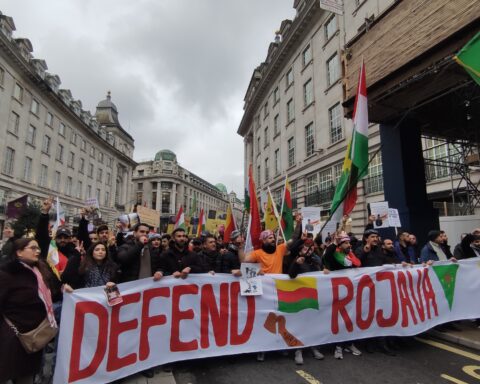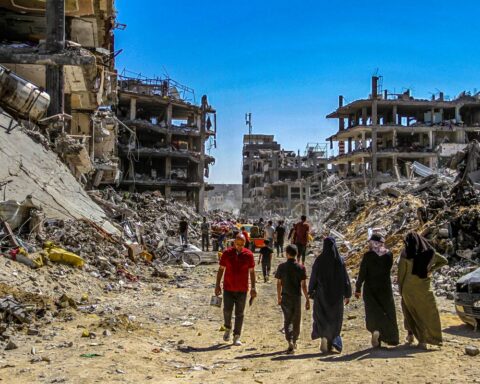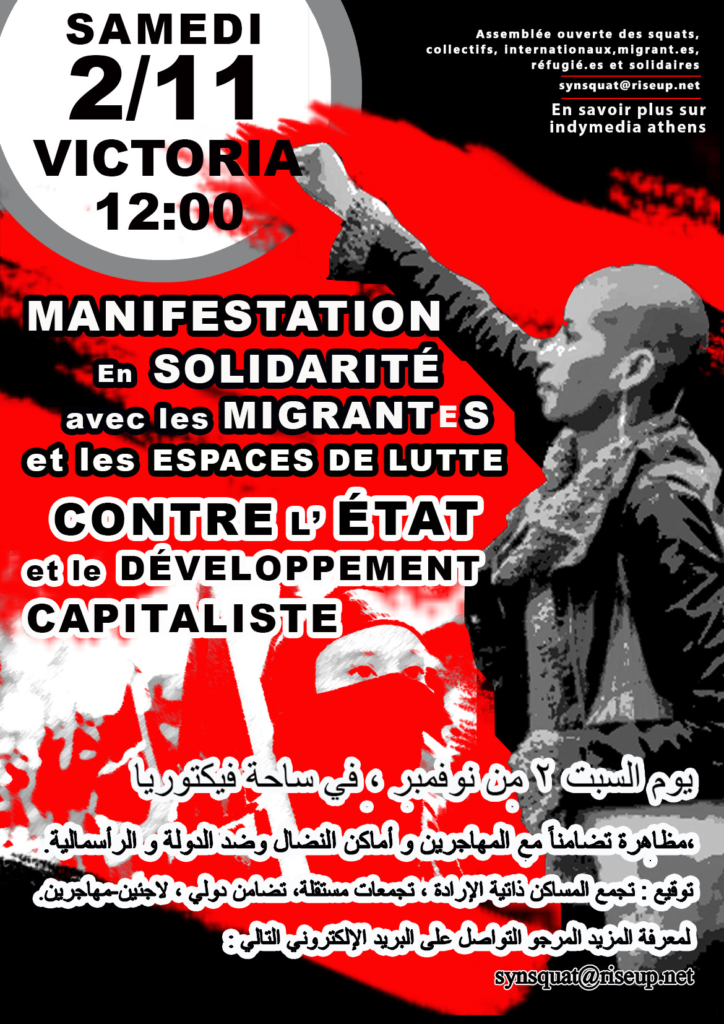
SOLIDARITY DEMONSTRATION FOR MIGRANTS AND SPACES OF STRUGGLE AGAINST THE STATE AND CAPITALIST DEVELOPMENT
VICTORIA SQUARE NOVEMBER 2, 2019, starts at 12:00 Athens Greece
_____________________________
If you are a migrant…
Migrants are undervalued and attacked in all aspects of their lives. They follow the path of migration to escape war, poverty, and sometimes because of a desire for a better life. Wars are fomented by bosses and their states to serve either their political or economic goals – the exploitation of mineral resources, the development of the arms industry, the control of geostrategic locations. A concrete example is the Greek state, which together with its allies is currently participating in aerial combat operations in Afghanistan, while it also took part in the 2003 invasion of Iraq, which continues to this day, and triggered a resurgence of the chaos of war in the Middle East.
As they travel, migrants encounter murderous border regimes of which in recent years states have been tightening the control, closing safe passages and pushing people to even more dangerous routes. They are forced to handover their life savings to networks of people smugglers and risk drowning due to poor weather conditions or inadequate means of transport. There are recorded incidents where border police have attacked, pushed back, or even worse, sunk migrant boats. Even if they make it past this, the hellholes of Greece, Turkey, Cyprus, and Libya await them.
Initially, “hotspots” filter the population by collecting their personal data and then categorising it according to nationality and other arbitrary factors. The process ends with imprisonment or confinement to concentration camps that are guarded by the police and army. Thousands of people who share common characteristics, such as immigration, place of origin and difficult economic situations are crammed in the same space. These so-called “Hosting Structures” have clear racist and classist characteristics that are most harshly reflected in their living conditions. Such conditions consist of being housed in metal containers that become virtual ovens in the summer or in tents that become sodden and submerged in the winter, inadequate food to maximise contractors’ profits, and lack of basic health care and medication to the extent that creates a serious risk of mass infection or disease. Worst of all however is the loss of freedom, which is accompanied by indefinite detention, constant checks, and restrictions on movement.
The next test migrants face is the ongoing war by the cops in the neighbourhoods in which they live and work. Murders and beatings in police stations, ID checks and arrests that result in long-term detentions, disappearances and deportations. We will not forget the Nigerian, Ebuka, who was tortured to death inside Omonia police station in February 2019, nor the eight Algerians who ended up with broken limbs at the hands of the fascist guards in Petrou Ralli detention centre in 2018.
At work they are endlessly exploited, as they constitute the most invisible class of workers. The devaluation of their work is accompanied by total or partial exclusion from education, health and general public services. The work of migrants in Greece evokes similar practices in the 90s characterised by degrading wages, work on the black market and employer terrorism. Bosses take advantage of undocumented migrants for further exploitation. They create a state of fear attempting to suppress resistance by such means as calling the cops when the time comes to pay their salaries or maintaining a constant turnover of employees. On the other hand, there is the employer tactic of Manolada for the case of migrants with papers.
The war on migrants is organised by bosses and states who utilize inherently racist and nationalist myths in order to maintain and perpetuate exploitation. For example, the mainstream media today conceals the fact that since mid-2015 the number of new migrants in Greece is only 60,000, and their numbers remain constant. Instead, they propagate racist, nationalist, and militaristic propaganda all day with headlines like “invasion,” “landing” and “there’s no more room”. Obviously for us it is not a question of “room”, since we know that in our neighborhoods and our cities, there is room for all the oppressed and resisting people in the world.
Concentration camps as a national industry
Equally high on the agenda of the bosses’ political representatives is the continuation of the previous government’s policy of further developing the migrant concentration camp industry, with the creation of four new camps in the Attica region. A national industry that makes profits for private companies (NGOs), the Greek army (50% of migrants are now under the management of the army following the Mouzalas-Kammenos inter-ministerial agreement), catering bosses, security companies, property owners and various traffickers; that is to say, representatives of the inner core of the state.
At the same time, the NGO industry, operating both inside and outside the concentration camps, has become one of the most profitable and fastest growing for Greek capitalism. There is a raging conflict between the Greek and Turkish states over which warden will make the most profits from European Union people-guarding funds.
In March 2016 the EU decided to assign to Turkey the role of chief warden for its future workforce and signed the well-known EU-Turkey deal, while retaining other agreements with Greece, Egypt, Libyan tribal leaders, and others. For this reason, we believe that the demand for the annulment of the EU-Turkey agreement is about inter-state competition, rather than our class struggle.
These European states policies of illegalization and subjugation are used all over the world, for example by US capitalism towards workers from Latin America, and by Chinese capitalism after it has declared internal immigration illegal.
Resistance and Squatting as Means Of Resistance
In the face of these conditions migrants resist and rebel. They protest and set fire to the hellholes of Petrou Ralli, Samos, and Moria, they escape, occupy highways and trains, they camp at borders and clash with repressive forces of the state. And whenever they have the opportunity, they leave the concentration camps to return to the urban fabric, where they build their relationships in both social contexts and the work space. In urban centers they do a variety of jobs and sometimes fight to defend these only means of survival, such as the ASOEE peddlers’ joint struggle with anarchist-antiauthoritarian students.
They use and participate in the solidarity structures of the movement for housing and organising their lives in communities without terrorist control by the state. Such were Spyrou Trikoupi 15 Transito, Spyrou Trikoupi 17, the 2nd and 5th School and the most recently evicted squat Oneiro, as well as the dozens of squats evicted by Syriza, such as Azadi, New Babylon and Clandestina. These solidarity structures were located in the city near people, means of transport and communication, schools, and services needed by migrants to navigate the bureaucratic maze imposed by the state.
Squats, stekia (social spaces) and spaces of struggle in general, are multi-ethnic communities that in addition to housing migrants organise collective kitchens, medical centres, the supply of clothing and other essentials, self-organised classes, theatres, concerts, food production, and the collection of money and essentials for prisoners. These are communities that aspire to be shelters from domestic violence, patriarchy, and economic and political control of the state.
Beyond everyday needs and social structures, squats, social spaces and more generally spaces of struggle, are places for meeting and organizing for hundreds of oppressed, exploited and people in struggle. In squats such as the recently evicted Gare, Villa Amalias some years ago, and the majority of occupations in Greece, the voice of anarchist-antiauthoritarian militants and class consciousness germinates and is cultivated. In these spaces, actions against the state, capitalist and patriarchal interests are planned; and initiatives and collectives are created. The proliferation of squats reflects the rejection of the institution of private property, while at the same time their existence embodies this rejection. They support and nourish the revolutionary ideal that proclaims that the forces of the working classes and marginalized are able to expropriate buildings, occupy territories and build a life without state, capital, and patriarchy.
The fields of social/class struggle are not just in the defense of squats and social spaces. Squares and neighborhoods like Exarchia, whole places like Lefkimi and Skouries, schools and universities, are places where people fight against disastrous development plans and demarcate lines of defense against the armies of the state. That is why the spaces of struggle constitute a barrier to capitalist designs, and that is why the state has always tried to suppress them and discipline our own bodies. Fighters frustrate the efforts of the bosses and the state and leave an important legacy for the resistance of the future.
Growth means Devious Displacement
From Agrafa to Chania, from the center of Athens to the furthest island, the capitalist and state machinery is in the process of reorganising, promoting highly destructive development plans for both the environment and our neighborhoods. The renewable energy industry shaves and tears the mountains to build wind turbines, Pharaohnic projects that will last for a few years before becoming nothing but trash on a dead landscape. Works like the dam on the river Acheloos that is threatens to eradicate an entire village. Huge drills open deep wounds into the earth and the sea to absorb further fuels and minerals.
Beyond the plunder of nature, much of society is threatened as our neighborhoods are slowly being transformed into tourist resorts. The phenomenon of AirBnB, along with the material interests of landlords, are driving up rents while wages are kept to a minimum. The new conditions make us unable to meet the financial pressures and we are forced to abandon our neighbourhoods. Living costs are rising and our working future is reduced in the galley of the tourist industry, without even being able to live in the very neighborhoods in which we work. With the full support and involvement of the Municipality of Athens and local institutions of each area, our neighborhoods become advertising products and prey for the appetites of small or large bosses. At the same time, cop rule is stepping up to protect the smooth circulation of goods and to give businesspeople and consumers a sense of security. From the city to the countryside and from the islands to the mountains, the whole country is a construction site and centre of consumerism.
A holistic plan of state repression and capitalist development demands that we accept police rule and the standard of living that our bosses want to impose on us as normal.
As for Us
In the face of this, we respond that the class of oppressed and people in struggle can live and organise their lives without the oppression and exploitation of the state, capital, and patriarchy. Collectively organised into communities, neighborhood assemblies, and grassroots unions, with solidarity and self-defense structures, we can draw multiple strengths, resist, and brake the machines of social submission. Let’s not forget that all power and knowledge is in the hands of the exploited, and, together with the desire for creativity and freedom we can shoot for the sky.
– UNITED LOCAL AND MIGRANT STRUGGLES WITHOUT NATIONAL DIVISION
– NO TOLERANCE FOR CONCENTRATION CAMPS, PAPERS TO ALL MIGRANTS
– AGAINST THE DEVALUATION OF OUR LIVES AND THE DISPLACEMENT OF OUR BODIES
– AGAINST THE STATE, CAPITAL AND PATRIARCHY FOR SOCIAL AND CLASS FREEDOM
_______________________________________
Assembly of Occupied Spaces, Groups, Internationalists, migrants and people in solidarity
